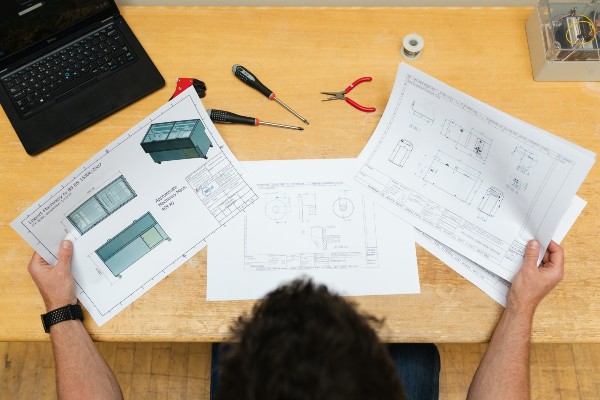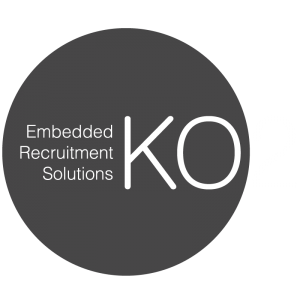The role of project engineer is one that often gets confused when talking about other jobs such as project manager, technical lead and technical director. Despite similarities in the job title and some crossover with responsibilities, a project engineer is a separate role that can be a key part of a large project team, particularly when certain technical knowledge is required.
Project engineers are common in the engineering industry where project managers need specific knowledge and experience in order to successfully oversee a project. Whether it’s a role that you are looking to move into, or you’re an employer wondering whether you need a project engineer in your company, this article covers the main responsibilities involved in project engineering, some common variations of the position, how to become a project engineer and the key skills needed for the role.
What does a Project Engineer Do?
A project engineer is a project manager who has specific technical expertise. The role is very common in all aspects of the engineering industry, but can also be found in IT, construction and manufacturing.
Project engineers are in charge of managing technical or engineering projects from start to finish. Not only do they have the typical project manager responsibilities like monitoring budget, delegating tasks and overseeing progress, but they will also need to advise on technical aspects of the project and mitigate any risks associated with the work being done.
Many engineering and construction projects are site-specific, which means that a project engineer will spend a significant portion of their time at a project site monitoring the work that is being done and directing members of their team. They will also spend some of their time speaking with project stakeholders and senior members of the business they work for, providing updates and discussing requirements and budget.
The purpose of a project engineer is to allocate the responsibility of a project to someone who has the technical knowledge and experience to see it through to completion. Instead of just using an employee with general project management skills, project engineers are a common choice in the engineering industry because of their experience in specific disciplines and the benefits this expertise can bring.

Project Engineer Responsibilities
Project engineers work in a wide range of sectors that undertake technical projects, and many of the responsibilities in these roles will come from the industry sector the engineer works in and the specifics of the project in question. The following project engineer responsibilities are general tasks that may be involved in their day-to-day work:
- Interpreting client briefs and establishing a project plan
- Setting project objectives
- Deciding on procedures and models of working
- Outlining a project schedule
- Identifying necessary standards or safety tests the final product must meet
- Taking responsibility for a team of engineers and managing each member to ensure that all necessary tasks are completed
- Liaising with company stakeholders, senior members of staff, contractors and suppliers involved in the project to ensure requirements are met and all necessary materials and equipment are acquired
- Preparing cost estimations and ensuring the project stays within its budget
- Delivering progress reports and schedule updates to relevant stakeholders, project managers and technical directors
- Troubleshooting issues and working with team members to resolve problems or setbacks
- Managing quality and safety standards that apply to the project and ensuring that the outcome meets these requirements
- Outlining procedures to measure project performance and success and then manage project development and refinement until these standards are met
As well as general project engineers, there are some more specialised roles found across the engineering industry, each of which has more specific responsibilities.
Mechanical Project Engineer
A mechanical project engineer will work alongside mechanical engineers on projects that aim to develop or improve mechanical systems. As well as general project management skills, they may also require CAD software skills, experience developing blueprints, market research skills, and practical abilities required when designing and assembling prototypes. Mechanical project engineers work in a range of industries, from defence to aviation and automotive.
Electrical Project Engineer
An electrical project engineer is responsible for designing and developing the electrical systems that are involved in a project. They supervise the creation and installation of this technology and are responsible for testing and refining it so that it meets all quality and safety standards before installation.
Electrical project managers often work alongside general project managers, especially in situations where the electrical side of a product is only a part of the wider project development. They will often be in charge of a few other team members, but answer to a more senior member of their company.
Aerospace Project Engineer
An aerospace project engineer manages the technical side of aerospace vehicle development, whether they’re working on specific components or the design of an aircraft as a whole. They will be in charge of a team of mechanical and electrical engineers and organise projects to design or refine aerospace technology, applying their technical knowledge as well as utilising good project management skills.
Offshore Project Engineer
Offshore project engineers work on projects that involve the mining of oil and gas from offshore locations, often working for extended periods of time on rigs. They will be responsible for coordinating teams of engineers and technicians who also work on the rigs, as well as managing projects to test and implement new methods for mining offshore fuels.
Software Project Engineer
A software project engineer can work in either the engineering or IT industry and is either the technical lead in a software development project or responsible for the software component of a wider project, such as developing a new embedded system. They will often have experience designing certain kinds of software, and may have specialised in a particular sector such as electronics, automation or robotics.
Key Skills for a Project Engineer
If you’re wondering how to be a good project engineer, there are a range of key skills that will benefit you in the role. Here are some of the most important.
Project Management
A project engineer is a specialist project manager, so you will need strong project management skills in the role, as well as experience leading and coordinating others. Project management skills include things like organisation, communication, delegation and problem solving, as well as the ability to keep the big picture of a project in mind and ensure this vision is realised.
A key part of being a good project manager is also having good people skills, as you will need to motivate and manage a group of other engineers or technicians in the role, judging the best approach to take with each of these.
Technical Expertise
Having specific technical expertise in a certain area is a role requirement of a project engineer. No matter the industry you are hired in, you will have been chosen for the role because of your technical ability as well as project management skills.
A project engineer needs technical expertise because they will be in charge of solving any problems that their team comes up against during the project. They will also need to ensure that the final outcome meets all relevant safety and quality standards, and in the engineering industry this often requires experience and understanding of certain specifications and legal standards.
Initiative
As a project engineer, you have the power to make decisions that will impact the outcome of your project. A key skill required for this is initiative, so that you can identify where a change needs making and feel confident in your choice to do so. Innovation is also an important part of success in a project, and again, this requires the project engineer to take initiative.
Time Management
Time management is one of the most important project management skills that a project engineer needs to have. From the start of a project you will be following a schedule and usually have multiple deadlines that need to be met, so organisation and a realistic idea of how long tasks will take is essential to completing everything in time.
Teamwork
Whilst a project engineer is the head of a team, it is important that they also play their part in the group and put in the work necessary to complete the project, instead of just directing everyone else to do the work for them. Leadership skills are necessary, but you should also be able to work alongside your team members and listen to their ideas and suggestions in order to make the project run smoothly.
Being a good team player will also mean that the people you work with will like you and respect you more as a project engineer, making it likely that you’ll be chosen again for the role.
How to Become a Project Engineer

Project engineers work in a range of industries, so an engineering degree isn’t always necessary to succeed in the role. However, if you are hoping to become a project engineer in a specific sector of engineering, you will be helped by completing a Bachelor’s degree in your chosen field, as this is the level of qualification that most employers are looking for.
However, the main requirement of a project engineer role is technical expertise and experience, which you don’t necessarily need a degree to gain. Apprenticeships and diplomas in engineering, construction and computer science can all lead you to jobs that offer the same level of work and responsibility as those that require a degree, so you don’t have to attend university to pursue a career in project engineering.
Something you will need as a project engineer however is experience. It’s a role that requires at least a few years of work in a particular sector of the industry so that you have an idea of how projects usually work and the requirements of these, so it’s unlikely you’ll go straight into a project engineer role unless you’ve done a lot of work experience during your years of study.
In order to become a project engineer, seek out opportunities in your career to manage others, take the lead on tasks and demonstrate to your employer that you can be trusted to lead others and take responsibility. You may take on project management roles first before you become a project engineer, or may work in other positions such as technical lead.
What is a Project Engineers Salary?
According to data from Payscale, the average annual salary for a project engineer in the UK is £33,521. Starting salaries for newly qualified employees are more likely to be between £22,000-£24,000, whilst those who have been in the role for a while can expect to earn up to £48,000 in certain positions.
The more specialised your knowledge and experience as a project engineer, the more money you can expect to earn in your role.
Summary
The role of engineers in projects can be varied, from technical support to one of a team of engineers and then roles like technical lead or project manager. If you’re undertaking a project that relies on specialised technical ability, having a project engineer as well as or instead of a project manager could be the best decision for your team.
If you’re an employer in the embedded systems industry that is looking for specialist help with hiring project engineers, or an engineer looking for a role such as this one, get in touch and find out more about how our recruitment agency can help you.







